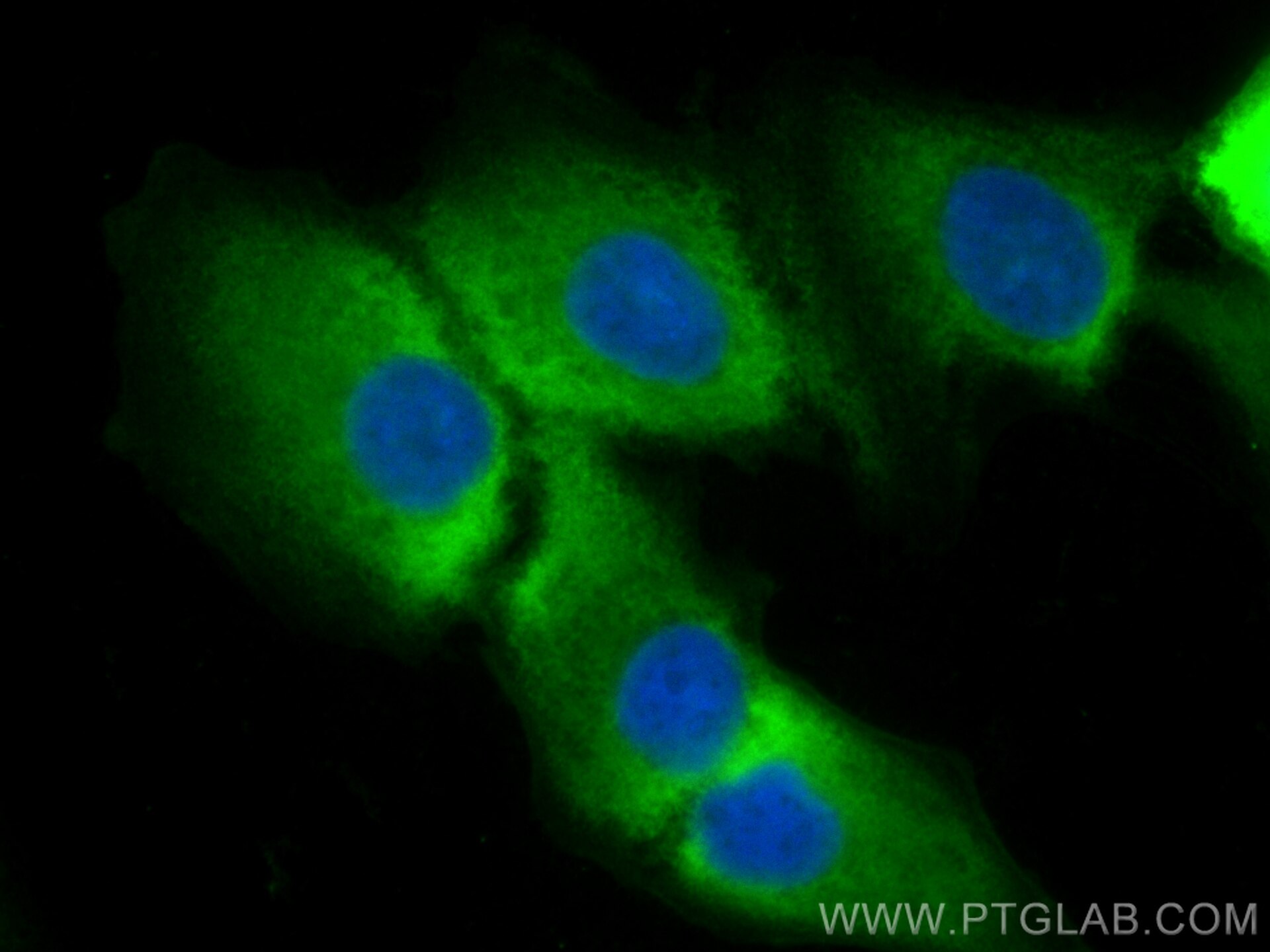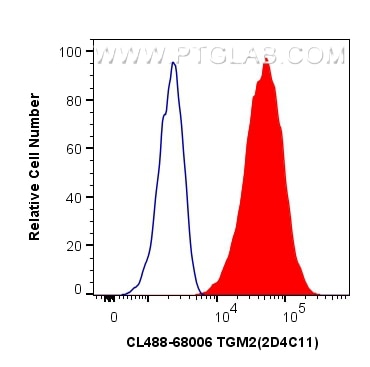Anticorps Monoclonal anti-TGM2
TGM2 Monoclonal Antibody for IF/ICC, FC (Intra)
Hôte / Isotype
Mouse / IgG2a
Réactivité testée
Humain
Applications
IF/ICC, FC (Intra)
Conjugaison
CoraLite® Plus 488 Fluorescent Dye
CloneNo.
2D4C11
N° de cat : CL488-68006
Synonymes
Galerie de données de validation
Applications testées
| Résultats positifs en IF/ICC | cellules A549, |
| Résultats positifs en FC (Intra) | cellules HeLa |
Dilution recommandée
| Application | Dilution |
|---|---|
| Immunofluorescence (IF)/ICC | IF/ICC : 1:50-1:500 |
| Flow Cytometry (FC) (INTRA) | FC (INTRA) : 0.80 ug per 10^6 cells in a 100 µl suspension |
| It is recommended that this reagent should be titrated in each testing system to obtain optimal results. | |
| Sample-dependent, check data in validation data gallery | |
Informations sur le produit
CL488-68006 cible TGM2 dans les applications de IF/ICC, FC (Intra) et montre une réactivité avec des échantillons Humain
| Réactivité | Humain |
| Hôte / Isotype | Mouse / IgG2a |
| Clonalité | Monoclonal |
| Type | Anticorps |
| Immunogène | TGM2 Protéine recombinante Ag7462 |
| Nom complet | transglutaminase 2 (C polypeptide, protein-glutamine-gamma-glutamyltransferase) |
| Masse moléculaire calculée | 77 kDa |
| Poids moléculaire observé | 80 kDa |
| Numéro d’acquisition GenBank | BC003551 |
| Symbole du gène | TGM2 |
| Identification du gène (NCBI) | 7052 |
| Conjugaison | CoraLite® Plus 488 Fluorescent Dye |
| Excitation/Emission maxima wavelengths | 493 nm / 522 nm |
| Forme | Liquide |
| Méthode de purification | Purification par protéine A |
| Tampon de stockage | PBS with 50% glycerol, 0.05% Proclin300, 0.5% BSA |
| Conditions de stockage | Stocker à -20 °C. Éviter toute exposition à la lumière. Stable pendant un an après l'expédition. L'aliquotage n'est pas nécessaire pour le stockage à -20oC Les 20ul contiennent 0,1% de BSA. |
Informations générales
Transglutaminase 2 (TGM2) is a ubiquitous and multifunctional calcium-dependent enzyme belonging to the transglutaminase family. It is best known for its canonical activity of catalyzing the cross-linking of proteins by forming stable ε-(γ-glutamyl)lysine isopeptide bonds, which contributes to extracellular matrix stabilization and wound healing. Beyond this, TGM2 exhibits GTPase activity, allowing it to function as a signaling G-protein in intracellular processes. It is implicated in a wide range of physiological functions, including cell adhesion, proliferation, and apoptosis, as well as pathological conditions such as celiac disease, fibrosis, neurodegenerative disorders, and cancer metastasis, where its dysregulated expression often contributes to disease progression.
Protocole
| Product Specific Protocols | |
|---|---|
| IF protocol for CL Plus 488 TGM2 antibody CL488-68006 | Download protocol |
| Standard Protocols | |
|---|---|
| Click here to view our Standard Protocols |



